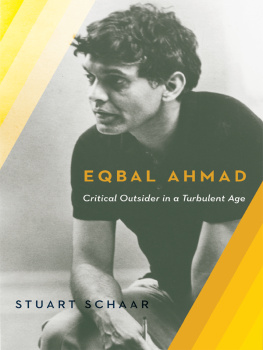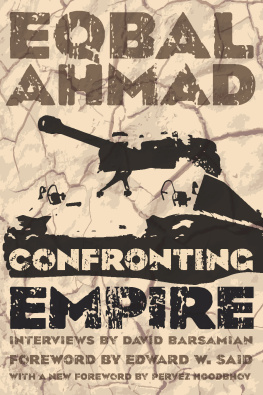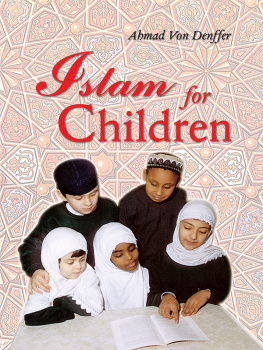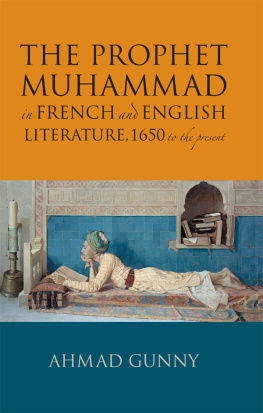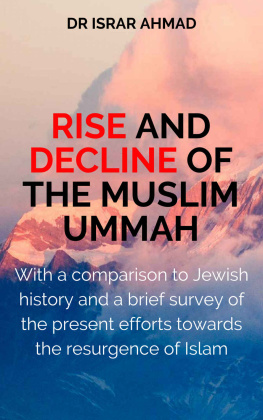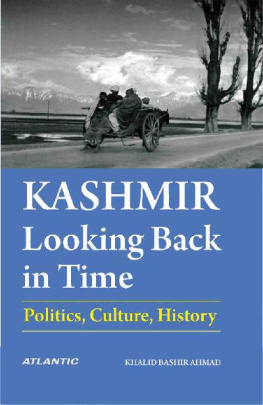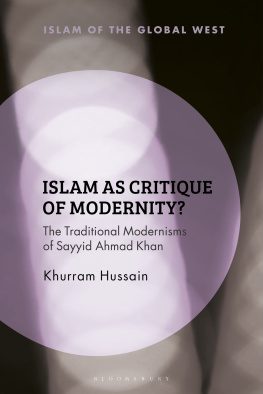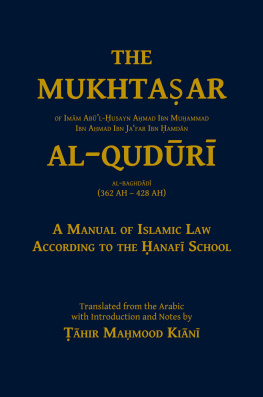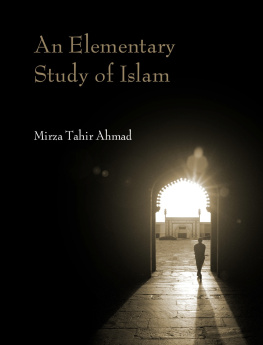EQBAL AHMAD
STUART SCHAAR
EQBAL AHMAD
Critical Outsider in a Turbulent Age
COLUMBIA UNIVERSITY PRESS New York
Columbia University Press
Publishers Since 1893
New York Chichester, West Sussex
cup.columbia.edu
Copyright 2015 Stuart Schaar
All rights reserved
E-ISBN 978-0-231-53992-0
Library of Congress Cataloging-in-Publication Data
Schaar, Stuart.
Eqbal Ahmad : critical outsider in a turbulent age / Stuart Schaar.
pages cm
Includes bibliographical references and index.
ISBN 978-0-231-17156-4 (cloth : acid-free paper)
ISBN 978-0-231-53992-0 (e-book)
1. Ahmad, Eqbal. 2. Political activistsUnited StatesBiography. 3. Political activistsPakistanBiography. 4. JournalistsBiography. 5. Political scientistsBiography. 6. PacifistsBiography. 7. World politics19451989. 8. World politics19899. Islam and politicsHistory20th century. 10. Social changeHistory20th century. I. Title.
JC273.A49S34 2015
320.092dc23
2015003669
A Columbia University Press E-book.
CUP would be pleased to hear about your reading experience with this e-book at .
COVER DESIGN: CHANG JAE LEE
COVER IMAGE: EQBAL AHMAD AT CORNELL UNIVERSITY, 1996. (REPRODUCED BY PERMISSION OF DOHRA AHMAD)
References to Web sites (URLs) were accurate at the time of writing.
Neither the author nor Columbia University Press is responsible for URLs that may have expired or changed since the manuscript was prepared.
TO THE MEMORY OF MY SISTER, LEONA (19342005), AND TO THE GOOD TIMES WE SHARED
CONTENTS
THE SOURCES FOR THIS BOOK INCLUDE MANY CONVERSATIONS with Eqbal Ahmad over forty years, starting with the time we spent together from 1958 to 1964 at Princeton University, in New York City, and in North Africa, where we both conducted research for our doctorates. Strangely but wonderfully, I kept our written correspondence from this period, including carbon copies of the letters I sent him. They supply not only chronology but also anecdotes of events in our lives.
I again became very close to him during 1970 to 1972 as a result of his being indicted in the Harrisburg 7 case. As the initial treasurer of the Harrisburg Defense Committee in New York City, I was privy to some of the decisions made by the defendants and got to know all of them except Phil Berrigan, who was imprisoned. I also paid legal expenses for the lawyers on the case and in this way got to know Leonard Boudin and Ramsey Clark. I used to love going down to Leonards office on East Forty-second Street in Manhattan and shooting the breeze with this very interesting man. I even did research for him and was impressed with his profound knowledge of where I would find the legal cases he was looking for. He was filled with anecdotes and wonderful stories about a storybook life. Ramsey and his wife, Georgia, also became friends, and I visited their Greenwich Village apartment often while the committee was in New York City.
My personal archive, especially hand-written minutes of strategy meetings with the defendants and notes on my private meetings with Eqbal, provides an excellent record of events that transpired. It was the first time in my life that I worked with and socialized with radical priests and nuns. I have cherished that fantastic experience throughout my life. I remember vividly the bigger-than-life Irish Jesuit priest Joe ORourke, the quiet, but profound Jim Forest, the energetic and very smart John Akagi, the wonderful nuns in blue jeans Judy Peluso and Lillian Shirley, the personable Kathy Jones, the intense Tom Davidson, and many others.
In the 1980s, Eqbal and I were neighbors for parts of each year on the Upper West Side of Manhattan. We saw each other often, organized together, wrote articles about North Africa together, and had great fun. I didnt keep many written records of those years, but I have vivid memories of conversations, meetings, visitors who poured through our lives, and especially the evenings spent over long dinners with scintillating people and fine food. We stayed in touch by letter and then email when we traveled abroad, remained close friends, and shared a great deal.
Through him I visited India and Pakistan in 1980 and returned to Pakistan in 2004, a few years after he died. I met his wonderful friends and relatives there and was astounded by the hospitality I received simply because I was Eqbals good friend. I was overwhelmed by their friendship and cherish the memories of being with them. They told me much about Eqbal that is not written anywhere, providing me with oral sources that are precious. Writing this book was a wonderful experience because it brought back extraordinary memories of exceptional times.
MANY PEOPLE HELPED ME TO DO THE RESEARCH FOR THIS book. First, Eqbals family, especially his wife and daughter, Julie Diamond and Dohra Ahmad, shared a great deal with me besides their friendship over many years. They granted me permission to quote extensively from Eqbals papers at Hampshire Colleges Johnson Library and to use photographs in that collection. His sister Sharfa Jahani Khanum in Canada gave me invaluable information about his birth date and childhood in India. The writer Radha Kumar, with whom Eqbal lived at the end of his life, provided insights into his activities in the United States, Pakistan, and India. Besides friendship, his nephews Zuli and Iftikhar gave me precious information about their uncle. So did his nieces and nephews Hajra Ahmad (Hajo), Pervez Hoodbhoy, Nasra Ahmad, Najeeb Omar, Kavita Ramdas, and Cindy Colter. His sister-in-law Husnara Ahmad was a witness to his early years and invaluable in contextualizing his early life in India and Pakistan. His nephew Kamran Asdar Ali was especially helpful.
His many friends in Lahore, Islamabad, and Karachi welcomed me into their homes and offices because they knew that Eqbal and I were close friends, and they treated me with great hospitality. They include Arshad Durrani, Imran Hamid, Mubashir Hassan, Asma Jahangir, Raza Kazim, Zia Mian, Jugnu Mohsin, Rani and Kemal Mumtaz, Abdul Hamid Nayyar, I. A. Rahman, Najam Sethi, Parveen and Zaur Zaidi, and Nasim Zehra.
Eqbals friends Yogesh Chandrani, Richard Falk, Nadia Guessous, Amal and Nubar Hovsepian, Adam and Arlie Hochschild, Iqbal Riza, Adele Simmons, and Cora and Peter Weiss shared their knowledge of him with me. Marvin E. Gettleman and my friend in Morocco, Jim Miller, either suggested some changes in my text or discussed some of the sections of the book with me, helping to sharpen what I had written. Niels Hooper, editor at the University of California Press, pressed me to develop a thematic approach to the book and contributed greatly to clarifying points. Anne Routen, senior editor at Columbia University Press, backed the project and guided it through to its publication. I owe many thanks to Irene Pavitt of Columbia University Press and freelance copy editor Annie Barva, who did an excellent job of copyediting the text. Two anonymous readers for Columbia University Press made excellent suggestions to improve the manuscript. I am grateful for their advice, which I have followed closely. My literary agent, Edite Kroll, provided necessary encouragement, advice, and friendship.
Susan A. Dayall and Jim Jones, the archivists at Hampshire Colleges Johnson Library, where the Eqbal Ahmad Papers are stored, guided me through his voluminous papers. Many thanks to both of them.
Finally, I owe thanks to those close to me in Morocco, where I live, who encouraged me to persevere in this project: Dede and the late Mohammed Guessous, Fatema Mernissi, and my Tunisian friend Mahdi Sghair.

